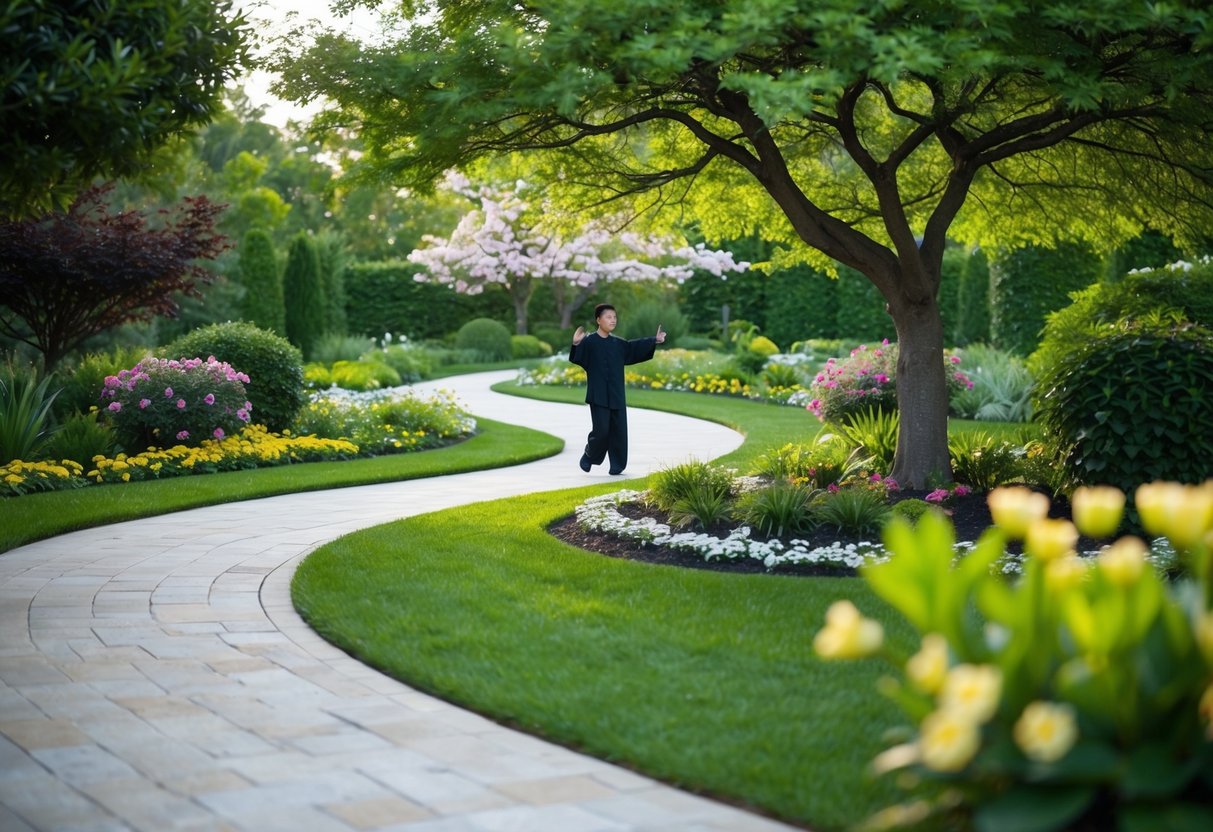DIY Mind-Body Therapies: Integrate Tai Chi and Qigong for Stress Relief
Integrative Practices for Physical Health

Integrating Tai Chi and Qigong offers valuable benefits, including improvements in sleep quality and physical function as well as enhanced balance to prevent falls. These practices are particularly effective in promoting physical health through gentle movements.
Improving Sleep Quality and Physical Function
Tai Chi and Qigong are known to contribute positively to sleep quality and physical health. Their gentle movements help relax the mind and body, making it easier to achieve a restful state. They often involve slow, deliberate movements combined with deep breathing, which can lower stress levels and make it easier to fall asleep.
Enhancing physical function is another notable benefit. Practicing these activities can improve muscle strength, flexibility, and endurance. This makes everyday tasks easier and reduces the risk of physical injury. Regular practice can also boost circulation, contributing to overall physical well-being.
Enhancing Balance and Preventing Falls
Tai Chi, in particular, is studied for its effectiveness in balance improvement and fall prevention. The exercises require steady and controlled movements that engage the core and lower body muscles, essential for stable balance. Practicing these movements regularly can lead to improved coordination and a stronger sense of equilibrium.
Fall prevention is critical for older adults, and Tai Chi provides a practical, low-impact way to reduce this risk. By strengthening the muscles and improving physical awareness, it enhances an individual’s ability to navigate various environments safely. This practice serves as a proactive measure against falls, promoting confidence and independence.
Tai Chi and Qigong in Preventive Health

Tai Chi and Qigong provide significant benefits, especially for preventive health. These therapies can aid older adults in managing age-related health issues and offer support for individuals dealing with cancer and chronic illnesses.
Older Adults and Age-Related Health Issues
Older adults often face health issues like decreased balance, muscle weakness, and joint stiffness. Tai Chi and Qigong improve flexibility, balance, and overall physical function. They are gentle exercises, making them accessible for those with varying levels of fitness. Regular practice can lead to enhanced mobility, reducing the risk of falls and associated injuries. Moreover, these activities promote relaxation and mental clarity, elements crucial for maintaining cognitive health. Engaging in Tai Chi and Qigong also fosters social interaction, which can alleviate loneliness and boost mental well-being.
Benefits for Cancer Patients and Chronic Illnesses
For cancer patients and those with chronic illnesses, Tai Chi and Qigong offer notable benefits. These practices help reduce cancer-related fatigue, enhancing the quality of life during and after treatment. The gentle movements and focused breathing techniques can ease symptoms like pain and stiffness, common in chronic illness. In supportive cancer care, they provide an avenue for stress relief and emotional resilience, critical components for improved health-related outcomes. Patients report not only physical benefits but also a sense of empowerment and improved emotional stability, fostering a holistic approach to health management.



